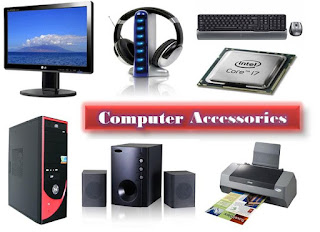What is PC?
PC is an acronym that stands for personal computer. They are those smallest, inexpensive and most familiar kinds of computers largely owned by individuals. They are also called micro computers. They can fit next to a desktop or can be carried around. They are most widely used and fastest growing type of computer.
Micro computers are of several types they are: (PDA) and Palmtops. Desktop PCS, Tower PCS, Lap tops, Notebooks, Desktop PCS Personal digital assistance
Desktop PCS: These are those in which the case or main housing sits on a desk, with keyboard in front and monitor often on top. Desktops are small enough to fit on top
of or long-side a desk yet is too big to carry around.
Tower PCS: They are those which the case sits on a “tower” often on the floor beside a desk.
Laptops: They are light weight portable computers with built-in monitor, keyboard, hard-disk drive, battery and Ac adaptor that can be plugged into an electric outlet. A laptop may be either the s Ac powered or battery powered or both. These computers are ideal for users who have to work away from their offices.
Personal Digital Assistance (PDA): it is known as a hand held computers. They combine pen input, writing recognition, personal organization tool, schedules planers, address books, to do lists with communication capabilities (sending e-mails and faxes) in a very small package.
PC UPGRADE
Pc upgraded is the process of changing or replacing the old, outdated and faulty pc devices with current and functional ones to help extend and enhance the life of your pc. Pc upgrade also entails installing current software that will increase the performance and functionality of the system. It simply means adding new hardware to your pc.
REASONS FOR UPGRADE
1. To meet up with the emerging pc technologies/ technological changes in computers hardware.
2. To meet up to the user demand for higher processing power.
3. To accommodate the emergence of complicated software package.
4. To improve performance.
5. To add new functionality.
6. To replace a failing part.
PC MAINTENANCE
Utilities give computer owners control over their hardware/software and protection against myriad problems. Maintenance aimed at reducing hardware/software conflicts and breakdowns.
Pc maintenance can also be defined as the practices of keeping compute are in a good state of repair.
Pc maintenance is divided into two namely:
a. Precautionary &
b. Preventive maintenance.
Precautionary maintenance is the process of taking necessary preventive measures and putting in place the required resources to prevent computer from breaking down. To ensure a continuous functioning of the computer system and its peripherals thus preventing frequent failures or obstruction, there is need for periodic and routine maintenance on them. This is also called preventive maintenance; it will be good to test the system to ascertain its performance.
During preventive maintenance, careful measures should be taken in other not to introduce faults in the system. The materials to be used should be defective free. Where the computer has to be open, power must be removed from it. Anti-static wrist wrap should be worn to avoid the circuit board damage by electrostatic discharge to all components on it. A good working environment should be ensured. There are areas where periodic maintenance is necessary within the pc enclosure. These areas are:
· The outer casing
· The floppy drive
· CD ROM drive
· System software
· Surface area of the circuit board and
· The monitor.
IMPROVING COMPUTER SPEED
There are ways in which one can improve the computer speed. Here are the tips to which the computer speed can be improved:
1. Reformatting and installing windows.
2. Optimizing start-up items and organizes data.
3. Install more ram.
4. Update your video card.













No comments:
Post a Comment